
Karina Benessaiah
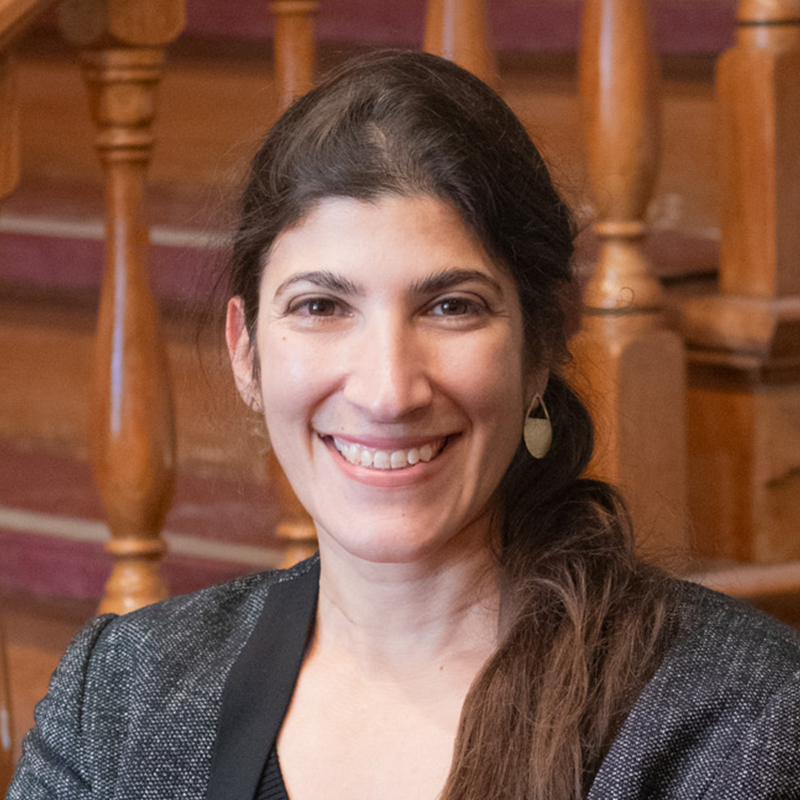
Karina Benessaiah have worked in Nicaragua and Panama and more generally in Central America on issues linked to narcotrafficking and the environment, local communities & also coastal dynamics (aquaculture, fisheries).
Areas of Research: Human-environment geography. Sustainability transformations, Urban-rural linkages, Counterurbanisation, Vulnerability, Social-ecological crises. Ecosystem services, Inequality, Human dimensions of global change
Further information: www.uoguelph.ca/profile/karina-benessaiah
Jordi Díez
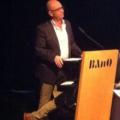
Areas of Specialization: Comparative Politics, in the areas of Latin American politics, judicial politics, comparative public policy, social movements, citizenship studies, sexual and reproductive rights, and public opinion formation.
Professor Díez has published on a variety of areas. He has been author/editor of six books, his most recent being The Politics of Gay Marriage in Latin America: Argentina, Chile and Mexico (Cambridge, 2015).
He is currently working on a comparative (Argentina, Colombia, Costa Rica and Mexico ) SSHRC-funded research project on judicial politics, with a particular focus on supreme/constitutional courts.
Further information: www.uoguelph.ca/~jdiez
Susan Douglas

Dr. Susan Douglas specializes in modern and contemporary Latin American art, art and crime and visual communication. She is an expert on digital art history and topics in cultural heritage; museums and art institutions; contemporary art and visual cultures.
Further information: https://www.uoguelph.ca/sofam/susandouglas
Paulina García-Del Moral

In her research and teaching Professor García-Del Moral examines the intersection of law, gender, and power in transnational processes in Mexico and across Latin America, Canada, and Europe. She examines the impact of transnational feminist activism on state responses to the killing of women; the transnational travel and legal institutionalization of feminist knowledges; and how the decisions of supranational human rights institutions on states’ policies on gender violence and reproductive rights shape national politics of belonging.
Further Information: www.uoguelph.ca/socioanthro/people/paulina-garcía-del-moral
Rhonda C. George

Rhonda C. George is an Assistant Professor in the Department of Sociology and Anthropology. Dr. George’s research is concerned with the social and intersectional dimensions of race, racialization, and racial stratification within social institutions such as sport, education, popular culture and medicine & health.
Grounded in Black Studies and Critical Race Theory, her research is concerned with the ways in which Black communities, particularly Caribbean diasporic groups, experience, navigate, and resist systemic racial barriers.
Further information: https://www.uoguelph.ca/profile/rhonda-george
Rosario Gómez

Dr. Rosario Gomez has supervised theses in areas of onomastics, language contact (Spanglish in the USA and Canada, French and English contact, French and indigenous languages in Canada), Translation studies, Phonetics, 2nd language acquisition, language policy, among others. She is very interested in Ecolinguistics, the intersection of language and ecology.
Further information: https://www.uoguelph.ca/solal/solal-rosario-gomez
M. Gloria González-Morales

Professor González-Morales research involves the disciplines of occupational health psychology and positive organizational psychology and focuses on stress, work-life issues, victimization, incivility and civility, and positive organizational interventions to enhance well-being and performance.
He has published her research in outlets such as Journal of Applied Psychology, Journal of Occupational Health Psychology, and Work & Stress and Journal of Organizational Behavior. She is also associate editor (2018) of Work & Stress: An International Journal of Work, Health & Organisations.
Further Information: www.uoguelph.ca/psychology/users/m-gloria-gonzález-morales
Noella Gray
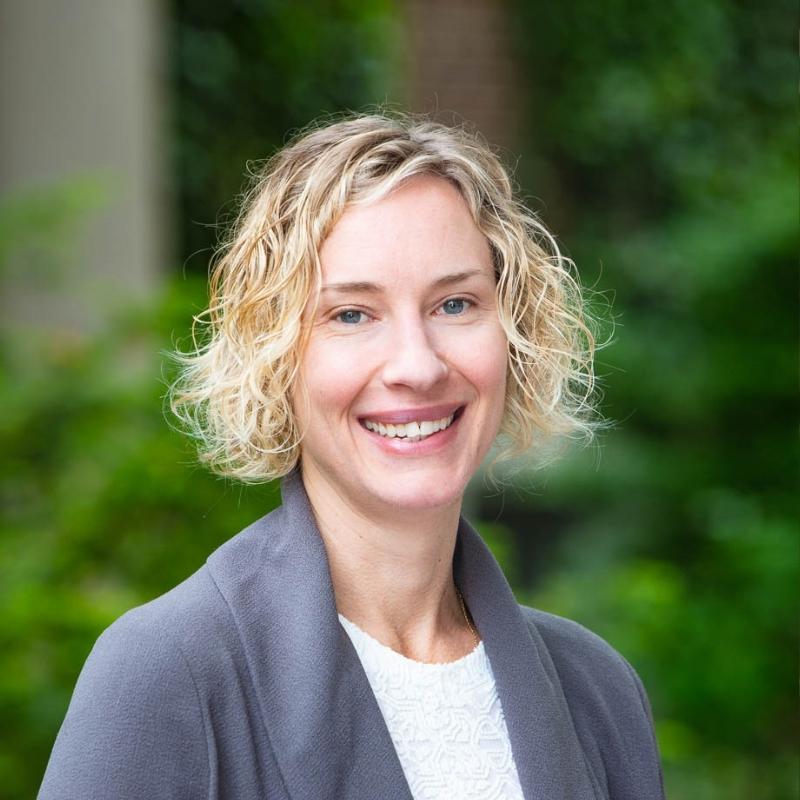
Noella Gray is a Professor in the Department of Geography, Environment and Geomatics. She is a political ecologist whose research focuses on ocean governance and marine conservation across scales, from community-led initiatives to international policy. In the area of Latin American and Caribbean Studies, she has explored marine protected areas and volunteer ecotourism projects in Belize and Costa Rica as well as community-led governance (autogestión) in Puerto Rico, in collaboration with a Puerto Rican scholar and community organizations. Prof. Gray is interested in supervising and working with LACS students who are interested in the politics of the blue economy, Island Studies, marine conservation, and community-engaged scholarship that advances the interests of Caribbean communities.
For details see: https://www.uoguelph.ca/profile/noella-gray
Stephen Henighan

A Governor General's Award nominee, a novelist, short story writer, journalist, scholar, and teacher, Professor Henighan has explored subjects that range from Latin American writers in 1920s Paris to the impact of NAFTA on Canadian publishing to national identity debates in Moldova to the literature of the Nicaraguan Revolution. He is fascinated by how literature imagines the nation, and even plays a role in bringing national identity to life, particularly in countries that reject the liberal ideology of globalization. Dr. Henighan is a leading researcher in the College of Arts.
Further information: https://www.uoguelph.ca/arts/solal/people/stephen-henighan
Dr. Jasmin Hristov is an Assistant Professor in the Department of Sociology and Anthropology and the Guelph Institute of Development Studies. She is presently the principal investigator for the SSHRC-funded project Land Violence, Security and Development in Honduras, Guatemala and Mexico. Previously, she led two SSHRC-funded projects on violence, land dispossession and human rights violations in Central America and Mexico where she carried out over one hundred interviews and a number of focus groups.
She is the author of two books – Paramilitarism and Neoliberalism: Violent Systems of Capital Accumulation in Colombia and Beyond (Pluto Press 2014) and Blood and Capital: the Paramilitarization of Colombia (Ohio University Press 2009) as well as the lead editor in the forthcoming volume Paramilitary groups and the State under Globalization: Political Violence, Elites, and Security (Routledge).
Further Information:https://socioanthro.uoguelph.ca/people/jasmin-hristov
Candace Johnson

Candace Johnson is a political theorist with expertise in gender politics, maternal health policy, and reproductive rights. Her book, Maternal Transition: A North-South Politics of Pregnancy and Childbirth (published by Routledge 2014 and 2016), is a comparative examination of maternal health preferences in Canada, the United States, Cuba, and Honduras and the ways in which these preferences reflect global, regional, national, and micro-scalar dynamics (the research for which was supported by a SSHRC Standard Research Grant). She has also published more widely on women and politics, health care policy, social rights, and Latin American politics. Her latest book project is a volume on Human and Environmental Justice in Guatemala, co-edited with Stephen Henighan.
Further information: http://www.uoguelph.ca/csahs/web/research/faculty-profiles/candace-johnson
Craig Johnson
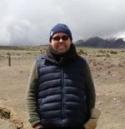
Craig Johnson (PhD, London School of Economics, 2000) is Professore of Political Science at the University of Guelph. His research lies in the field of global environmental politics, focusing primarily on the role of cities in global climate politics, the intersection of Indigenous, extractive and environmental politics in Ecuador and the institutional foundations of rural-urban resource conflicts in South and Southeast Asia.
In the area of Latin American research, Professor Johnson is a recipient of SSHRC Insight Development Grant (2018), which is looking at the politics of conserving land for carbon sequestration in the Ecuadorian highlands. He is a co-author of a recently published article "Comunidad indígena de San Rafael de Chuquipogio, Chimborazo: transformaciones agrarias y cambio climático," Revista de Historia, Patrimonio, Arqueología y Antropología Americana (2020), and forthcoming English-language article on the impact of COVID-19 on Indigenous communities that will be appearing in 2021 in the Journal of Agrarian Change. Prof. Johnson is interested in supervising and working with LACS students who are interested in the politics of extraction and post-extractivism in South America. He is particularly interested in working with students who are interested in working on Ecuador.
For more information visit: http://polisci.uoguelph.ca/people/craig-johnson
Lisa Kowalchuk

One of Dr. Kowalchuk´s main research interests is social movements and collective action. She has done research on small and landless farmers’ efforts to deepen and defend land reform, and maintains an interest in the fate of existing land reforms under state efforts to unravel them. She is also interested in collective resistance to neoliberal globalization in Central America, particularly trade integration and privatization of public services. Her most recent research project looked at the impact of neoliberal policies on the work conditions of nurses in El Salvador and Nicaragua.
Further information: http://www.uoguelph.ca/csahs/web/research/faculty-profiles/lisa-kowalchuk-associate-professor
Stuart McCook

Stuart McCook is an Associate Professor of History. Professor McCook’s research focuses on the history of tropical crops and commodities, especially in the nineteenth and twentieth centuries. Crops such as sugarcane, coffee, cocoa, and bananas have played an important role in shaping economy, society, and culture in Latin America since the sixteenth century. As an environmental historian, McCook is currently exploring the interplay between economy and environment through global history of the coffee rust (Hemileia vastatrix), a catastrophic crop epidemic that spread across the world's coffee zones between 1870 and 1980. McCook runs a personal blog on the history of coffee at coffeecultures.org.
Further information: https://www.uoguelph.ca/history/history-stuart-mccook
Alan McDougall

In his most recent book Dreams and Songs To Sing: A Social History of Liverpool Football Club Professor McDougall argues that few pursuits in the modern world are more popular than football. Like other global products, from coffee and sugar to popular music, it encourages histories of cultural exchange rooted in ordinary experience.
Professor McDougall has been the advisor for the, "Barrio Football Clubs and Ethnic Identity Construction in Peru and Argentina" and ¨Latin American Football League Championship and Brazilian Identity¨
Further information: https://www.uoguelph.ca/history/history-alan-mcdougall
Erin Nelson
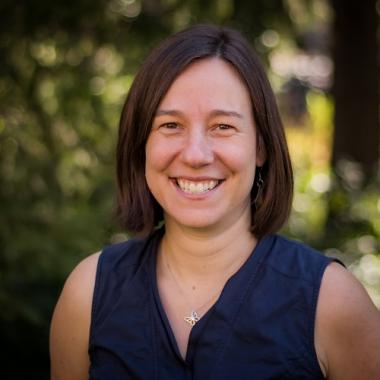
With a background in International Development and Rural Studies, Professor Nelson´s research explores the development of more sustainable food systems with a particular focus on agroecology initiatives in both Canada and Latin America. As a community engaged scholar, she work in close collaboration with a wide range of partners, including civil society organizations and farmer networks. I Prof. Nelson also has a strong interest in experiential learning and has developed agroecology-based educational programs with Cuba’s National Institute of Agricultural Sciences.
Further Information: www.uoguelph.ca/socioanthro/people/erin-nelson
Kate Parizeau

Kate Parizeau’s research uses waste management practices as a lens through which to interrogate complex systems of social organization and human exchanges with the natural world. This focus allows her to engage issues of social justice, environmental sustainability, and urban systems management. Parizeau’s research projects have investigated the lives and work of the cartoneros of Buenos Aires, Argentina– urban informal recyclers who sort through curbside trash to make their living. Her studies focus on these workers’ health, socioeconomic status, and access to social resources, drawing on their experiences in order to investigate the economic, political, and spatial rationalities that encourage and maintain high levels of social inequality in a modern city.
Further information: http://www.uoguelph.ca/geography/faculty/parizeau-kate
Karen Racine
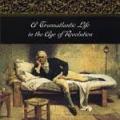
Most of Professor Racine´s work centers on the history and culture of the revolutionary independence period throughout Latin America and the Atlantic World. She is interested in issues of cross-cultural contact, national identity formation, and the creation of patriotic civic cultures from 1780-1830. Currently, she is completing a book called The Mansion House of Liberty: London's Spanish American Community 1808-1829. This project traces the effect of extended foreign residence on the Spanish Americans' sense of national identity, and documents the tremendous intellectual and cultural influence that Great Britain exerted upon their vision of post-independent nationhood.
Further information: https://www.uoguelph.ca/history/history-karen-racine
Pablo Ramirez

Dr. Ramirez’s area of research is contemporary US Latino literature. He has offered numerous graduate courses and modules that explore how US Latina/o cultural producers use the realm of fiction to overcome the gaps and omissions in official archives, thereby articulating a historical consciousness that engages both historical and collective memories. Professor Ramirez is currently working on a project titled, “Consent of the Conquered: Mexican-Anglo Romances and Contractual Freedom in Nineteenth-Century America.” This project examines how late 19th-century narratives of Mexican-Anglo romances engaged the language of contract in order to reconcile, critique or simply ignore the merger between an American republic that idealized contractual unions and an American empire based on the abridgement of consent
Further information: https://www.uoguelph.ca/sets/sets-pablo-ramirez
Silvia Sarapura
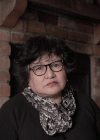
Silvia, an interdisciplinary academic, is a professor in the School of Environmental Design and Rural Development in the University of Guelph. She has built a strong and innovative track record in international rural and agricultural research for development. Currently, she has been doing research with the International Potato Center in the Andean Initiative. She is also collaborating with the Biodiversity-CIAT Alliance in the Seed Systems Resilience Project.
Further information: https://www.uoguelph.ca/sedrd/people/silvia-sarapura
Howard Spring

Dr. Howard Spring is an ethnomusicologist, jazz historian, and jazz guitarist. He has published research on the improvisational style of jazz guitarist Charlie Christian, the beginnings of Swing jazz during the late 1920s and early 1930s in New York, the relationship between jazz and social dance, swing performance practice, and the relationship between improvisation and musicianship in world music pedagogy. As a jazz guitarist he has played at various jazz venues in Toronto and in the U.S.
Further information: https://www.uoguelph.ca/sofam/howardspring
Gordana Yovanovich

Professor Yovanovich is the founding member of the Latin American and Caribbean Studies MA program. Her research is interdisciplinary, stemming mainly from studies of literature. Dr. Yovanovich has published on different topics such as the role of characters in Julio Cortázar's fiction, on play and the picaresque, on the new world order, and on the formation of Latin American identities after 1980. Her latest research and publications focusses on the re-imagining and resurgence of new communities.
Further information: https://www.uoguelph.ca/solal/solal-gordana-yovanovich





















